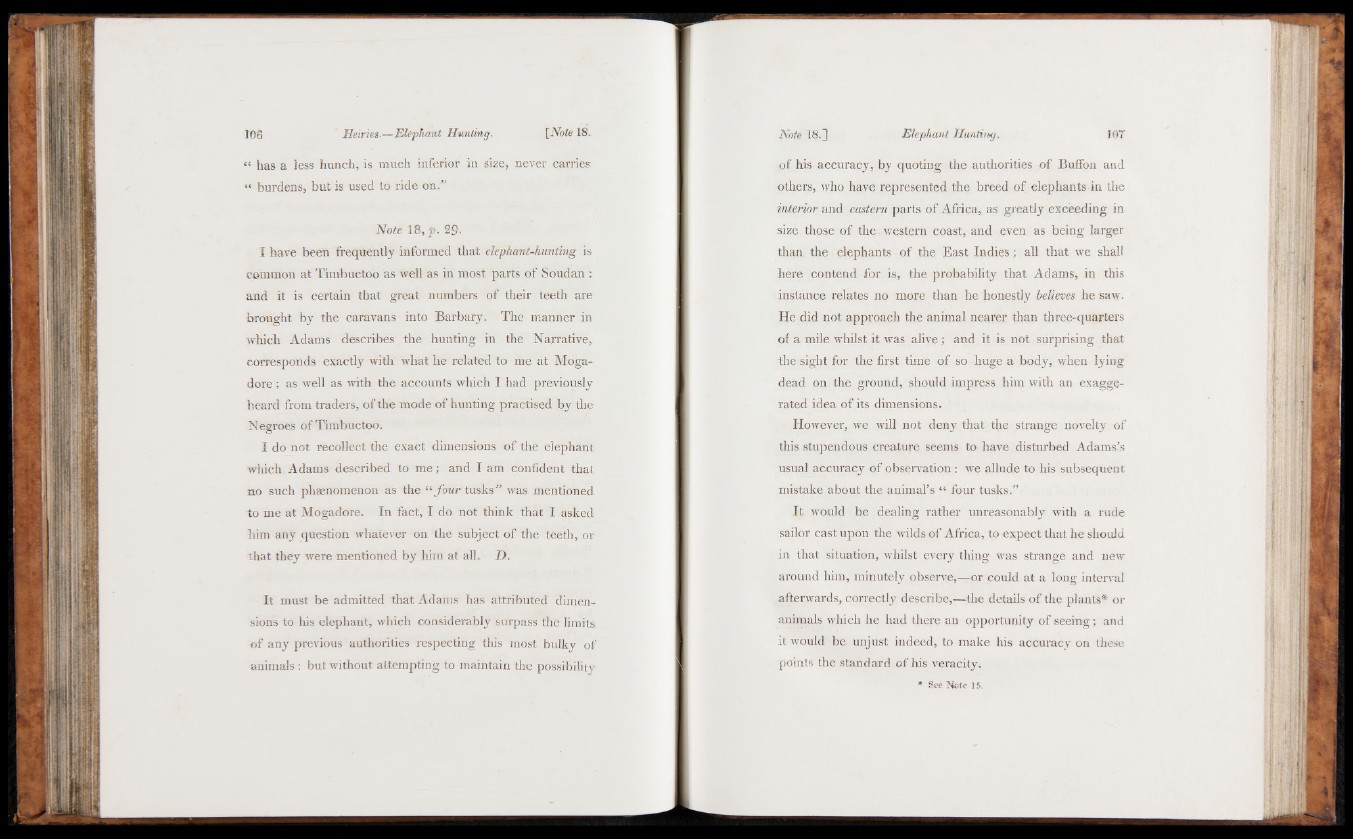
«« has a less hunch, is much inferior in size, never carries
« burdens, but is used to ride on.”
Note 18, p. 29.
I have been frequently informed that elephant-hunting is
common at Timbuctoo as well as in most parts of Soudan :
and it is certain that great numbers of their teeth are
brought by the caravans into Barbary. The manner in
which Adams describes the hunting in the Narrative,
corresponds exactly with what he related to me at Moga-
dore; as well as with the accounts which I had previously
heard from traders, of the mode of hunting practised by the
Negroes of Timbuctoo.
I do not recollect the exact dimensions of the elephant
which Adams described to me; and I am confident that
no such phenomenon as the “four tusks” was mentioned
to me at Mogadore. In fact, I do not think that I asked
him any question whatever on the subject of the teeth, or
that they were mentioned by him at all. Z).
It must be admitted that Adams has attributed dimensions
to his elephant, which considerably surpass the limits
of any previous authorities respecting this most bulky of
animals : but without attempting to maintain the possibility
of his accuracy, by quoting the authorities of Buffon and
others, who have represented the breed of elephants-in the
interior and eastern parts of Africa, as greatly exceeding in
size those of the- western coast, and even as being larger
than the elephants of the East Indies; all that we shall
here contend for is, the probability that Adams, in this
instance relates no more than he honestly believes he saw.
He did not approach the animal nearer than three-quarters
of a mile whilst it was alive; and it is not surprising that
the sight for the first time of so huge a body, when lying
dead on the ground, should impress him with an exaggerated
idea of its dimensions.
However, we will not deny that the strange novelty of
this stupendous creature seems to have disturbed Adams's
usual accuracy of observation : we allude to his subsequent
mistake about the animal’s jjjj four tusks.”
It would be dealing rather unreasonably with a rude
sailor cast upon the wilds of Africa, to expect that he should
in that situation, whilst every thing was strange and new
around him, minutely observe,—or could at a long interval
afterwards, correctly describe,—the details of the plants* or
animals which he had there an opportunity of seeing; and
it would be unjust indeed, tp make his accuracy on these
points the standard of his veracity.